Use 'Print preview' to check the number of pages and printer settings.
Print functionality varies between browsers.
Printable page generated Sunday, 15 February 2026, 1:06 AM
Session 3: Identifying my skills and qualities
Introduction
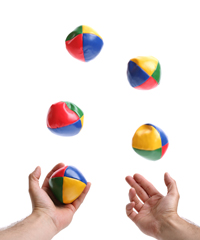
In this session we are going to look at learning in terms of skills and qualities gained both from caring responsibilities and through other areas of life. Skills might be considered as an ability or expertise that can be learned through practice, while qualities might be viewed as something more inherent, a characteristic trait, but which can be nurtured and perhaps developed.
Learning outcomes
After working through this session you will have:
an understanding of the various skills that could be developed within a caring role, and how some of these are transferable to other contexts
an appreciation of personal qualities developed through a caring role
the ability to use information technology (IT) to carry out reflective activities in writing and communicating
the ability to explore and use new ways of expressing ideas.
Carers’ skills and qualities
We will start by listening to Gavin, a young adult carer transitions worker at Renfrewshire Carers Centre, talking about the skills and qualities he has noticed in the young adult carers he works with.

Transcript
Gavin used some of the following key words and phrases to describe carers:
- organised
- reliable
- able to handle pressure
- caring
- in touch with their emotions
- able to identify other people’s emotions.
What are your thoughts about Gavin’s observations? Do you feel you have some of these skills and qualities? Are you organised, reliable, and do you handle pressure well? Are you sensitive to other people’s feelings and understand how to motivate people?
Learning points
Look back at Lesley, Scott and Jade’s timelines and learning points in Session 2. Think about all their different experiences as you read through these summaries of their skills and qualities.
Lesley
- Organised: juggling a range of caring and parenting responsibilities, part-time work, volunteering and study. Can plan and manage.
- Communication skills: liaison with a range of education and health professionals to support children’s needs.
- Knows how to handle stress: has got through difficult times and developed coping skills.
Scott
- Prioritising and time management: supporting brother and dad while studying and volunteering with carers centre.
- Communication skills: speaking at carers events, advocate for carers.
- Critical thinking: caring and experience has shown that there are alternative view points, applying college knowledge to caring.
- Team work: working with young adult carers to campaign for more support for young adult carers in Scotland.
Jade
- Organised: working with young people to organise events and provide support.
- Initiative: organised own volunteering. Sought and took up opportunities for training and studying.
- Confidence: taking initiative, making decisions and succeeding means increased personal confidence.
- Communication skills: working with new people in a volunteering role has shown her that she can get on well with others. Working with young people has helped develop her capability to listen, empathise and mentor.
- Determination and resilience: she hasn’t let setbacks like leaving college prevent her from making plans and taking action, or accept and complete personal challenges such as a sailing course.
Looking at their timelines and learning points, are there skills and qualities you think could be added to these lists?
Are these skills and qualities that you recognise in yourself?
Thinking about skills and qualities
First we will hear from various carers about the skills and qualities they have developed from their caring roles. Then it will be your turn to think about your own skills and qualities.
Dean
Listen to Dean talking about the skills he’s gained through his many caring roles.

Transcript
Clair

Clair reflects on how caring and the need to see things from the point of view of the person she is caring for means she knows how to see things from other people’s perspectives.
You have to think of the other person all the time … so you do think of the way they see things. I think it’s important for everyone to see everyone’s point of view. That’s such a vital thing in life, because if you just think of your own point of view and your own self and everything, then you don’t get other people and you don’t understand what they’re doing. You understand why someone’s doing something if you look at it from their point of view.
This ability to see things from another’s perspective is sometimes called emotional intelligence.
Anna
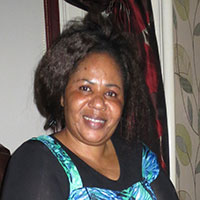
Anna looked after her brother through his mental ill health before he had to accept professional help, while also caring for her own children and finding her way in a new country. She is proud of being able to cope. She lists the things she is proud of achieving:
Look after someone who’s sick. Look after other children. Organising the house. Myself when I was taking my course at The Open University. Studying. It’s not easy. I’m proud of myself because I can say I’m well organised.
Janet
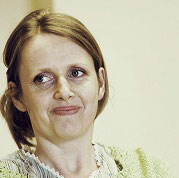
Janet reflects on how having to be organised and manage her time well means she is more focused. She also understands the value of patience.
I get stuff done a wee bit more quicker now … you’ve got to be more focused because if you spend too much time saying ‘I need to get such and such done’, it will never get done. So if you focus on something, then you’ll get the task done a lot quicker.
Patience. You’ve got to have patience. And you’ve got to be more laid back. Because I think if you’re not laid back, even just a wee bit, if you’re too much in a rush then everything is just wheeesht! If you’re trying to rush that other person to do something and they start shouting and bawling, then that’s it. Everything’s all gone.
Jade
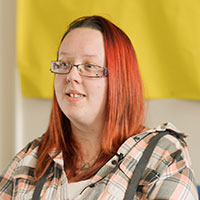
Jade draws confidence from reflecting on the initiative she displayed in taking steps to gain volunteering experience.
Just thinking about it today, I’ve kinda amazed myself … I’ve not really thought about it properly until now, I’ve kinda shocked myself, just, well I have actually achieved something.
Lesley
Listen again to Lesley talking through the skills she gained through caring, and thinking about how the reflection process helped her to recognise them.
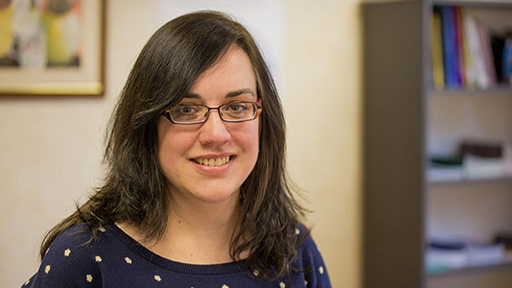
Transcript
Katrina
Now listen to Katrina reflecting on the skills she feels she’s learned through caring for her son. She talks about learning to be patient, how to negotiate and pursuing a goal.

Transcript
There are a lot of skills and qualities being talked about here. This table provides some examples for you.
| Skills | Qualities |
|---|---|
| Time management | Patience |
| Prioritisation | |
| Multi-tasking | Resilience |
| Organisational | |
| Communication, critical thinking | Emotional intelligence |
Do you recognise any of these skills and qualities in yourself?
What do you think about the skills and qualities highlighted by carers and summarised in Table 3.1?
Have you thought about the personal qualities that you possess and how you might use these? What skills and qualities have you developed through your caring experiences? What other skills do you have?
The skills we saw listed for Lesley, Scott and Jade result from all their experiences gained through education, their work and their caring roles.
Activity 3.1
Activity 3.1 Thinking about my skills and qualities
Go to Activity 3.1 of your Reflection Log. Once you have completed the activity, make sure you save the document again.
This activity invites you to think about how your experiences highlight the skills and qualities you have developed.
Pick an event or a point in your timeline when you had to take action to resolve something. It could be something to do with caring, your family, your work, or practical issues like housing and money.
If you are not using your Reflection Log use this table to do the activity. Make a list of what you did and then think about what skills you used, and the qualities that you have that may have helped you. These may or may not be the same as those suggested by the carers you’ve read about in this session.
If you are doing this course as part of a group or with a mentor then you can share your answers and discuss your notes with others.
Think about the following questions and make some notes in your Reflection Log or notebook:
- Did you find that you used some of the same skills that the carers described?
- Did you discover that you have other skills, maybe some that you were not aware of?
- Are you now aware of qualities that you have but hadn’t considered before?
Summary
The aim of this session was to get you thinking about how your experiences, particularly those you have had as a carer, have helped you develop skills and qualities.
Have you been able to recognise the skills and abilities that you have developed as a carer? Do you share those highlighted by the carers in this session? Do you have other qualities that your caring role has helped you to develop?
You have now completed Session 3. You will explore these ideas further in Sessions 5 and 6 where carers explore how the skills, abilities and qualities developed in their caring role informed their learning paths and enhanced employability.
Quiz
To conclude this part of the course and consolidate your learning you may like to complete the practice quiz.
The quiz provides evidence that you are achieving the following learning outcomes:
- a clearer understanding of the experiences that carers could reflect on, including their roles, actions and decisions
- an appreciation of personal qualities developed through a caring role
- the ability to use information technology (IT) to carry out reflective activities in writing and communicating
- the ability to explore and use new ways of expressing ideas.
If you need a reminder about the quizzes and the criteria for getting a badge, visit How to complete the course quizzes.
Acknowledgements
This course was written by Lindsay Hewitt, Sarah Burton and Julie Robson.
Except for third party materials and otherwise stated (see terms and conditions), this content is made available under a Creative Commons Attribution-NonCommercial-ShareAlike 4.0 Licence.
The material acknowledged below is Proprietary and used under licence (not subject to Creative Commons Licence). Grateful acknowledgement is made to the following sources for permission to reproduce material in this unit:
Images
Figure 3.1: Flynt/Dreamstime
Figure 3.2: photo by Ross Finnie for © The Open University
Figure 3.3: photo by Moira Dunworth for © The Open University
Figure 3.4: © The Open University/Library image (model image only)
Figure 3.5: photo by Ross Finnie for © The Open University
Every effort has been made to contact copyright owners. If any have been inadvertently overlooked, the publishers will be pleased to make the necessary arrangements at the first opportunity.
Don't miss out:
1. Join over 200,000 students, currently studying with The Open University – http://www.open.ac.uk/ choose/ ou/ open-content
2. Enjoyed this? Find out more about this topic or browse all our free course materials on OpenLearn – http://www.open.edu/ openlearn/
3. Outside the UK? We have students in over a hundred countries studying online qualifications – http://www.openuniversity.edu/ – including an MBA at our triple accredited Business School.